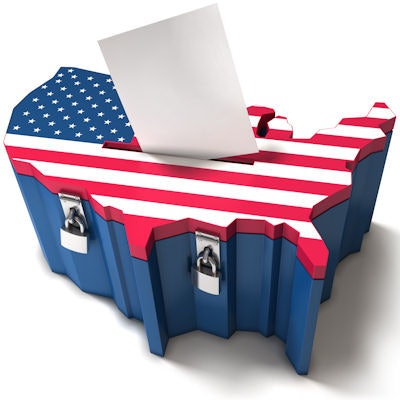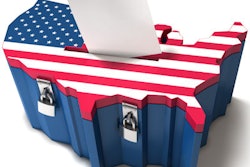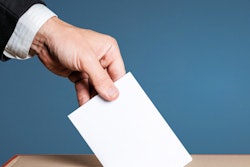
On November 8, U.S. voters will go to the polls to weigh in on many issues affecting dentistry, including the possible reelection of several dentists to the U.S. House of Representatives, the future of public water fluoridation, and whether healthcare is a human right.
Big ballot measure in Mass.
One of the biggest game changers is on the ballot in Massachusetts. Question 2 is asking voters to reform dental insurance medical loss ratios (MLRs).
If the ballot measure passes, dental insurance companies will be required to report their MLRs and operate minimally at an 83% MLR. This means that dental insurers would have to spend at least 83% of their revenue on patients, dental expenses, and quality improvements.
The ADA committed $5 million to help the measure get passed, and the American Association of Endodontists has endorsed the initiative. If it passes, it could lead to a new wave of similar legislation in other states.
States seeking to legalize marijuana
Legalized marijuana is on the ballot in several states. Missouri, Maryland, Arkansas, North Dakota, and South Dakota voters will decide whether to legalize recreational marijuana. Currently, 19 states and the District of Columbia have approved adult possession and consumption of recreational marijuana, and 37 states have approved medical marijuana use.
With more states possibly being added to that list and with 50% of dentists reporting that patients arrive to dental appointments high, the ADA on November 3 recommended that dentists discuss marijuana use during dental visits. Additionally, the ADA has called for additional research on marijuana and oral health and said it will monitor research to provide clinical recommendations for dentists and patients.
Healthcare rights and Medicaid access
Voters in Oregon are being asked to decide whether their state should be the first in the U.S. to change its constitution to declare that its residents have a right to affordable healthcare. If voters approve it, the state would be required to ensure every resident has access to "cost-effective, clinically appropriate and affordable health care," according to the amendment. However, the amendment uses broad language and makes no specific reference to dental care.
In South Dakota, voters are being asked to approve Amendment D, which would preserve Medicaid expansion in the state constitution. If voters approve the measure, residents who earn less than $19,000 annually will have access to healthcare coverage. Also, that will leave only 11 states, including Florida and Texas, that have not expanded Medicaid.
Flavored tobacco and fluoride
In California, voters will decide whether a 2020 law, which bans in-person stores and vending machines from selling most flavored tobacco products and tobacco flavor enhancers, will be put into effect. Though SB 793 was signed into law in 2020, it did not go into effect, because a referendum on the law qualified for this ballot. When this happens, a law is placed on hold until voters decide.
In Boothbay, ME, voters will decide whether to continue to have fluoride added to their public water system. Though the water has been fluoridated since voters approved the measure in 2014, news reports said the town's water department has struggled with adding fluoride in September due to supply chain issues.
Dentists on the ballot
On Tuesday, voters also have the opportunity to reelect the following dentists to two-year terms in office:
- Rep. Dr. Brian Babin (R-TX) is facing off against Democrat Jon Haire, a nuclear engineer.
- Rep. Dr. Mike Simpson (R-ID) is running against Democrat Wendy Norman, a teacher.
- Rep. Dr. Drew Ferguson IV (R-GA) is facing off against Democrat Val Almonord, a legislative and political coordinator for the American Federation of Government Employees Local 54.
- Rep. Dr. Jeff Van Drew (R-NJ) is running against Democrat Tim Alexander, an attorney.
Also, Rep. Dr. Paul Gosar (R-AZ) is running unopposed. No Democrats qualified for the ballot, so Gosar will be elected to a new term on November 8.
In recent years, Gosar has drawn criticism for his political views and comments, including for falsely suggesting that the 2022 election was "stolen" from President Trump. In July 2021, the ADA's political action committee (ADPAC) suspended political contributions to Gosar following months of mounting pressure from some of its members. In November 2021, then-ADA president Dr. Cesar Sabates told DrBicuspid.com that ADPAC will no longer financially support Gosar.




















